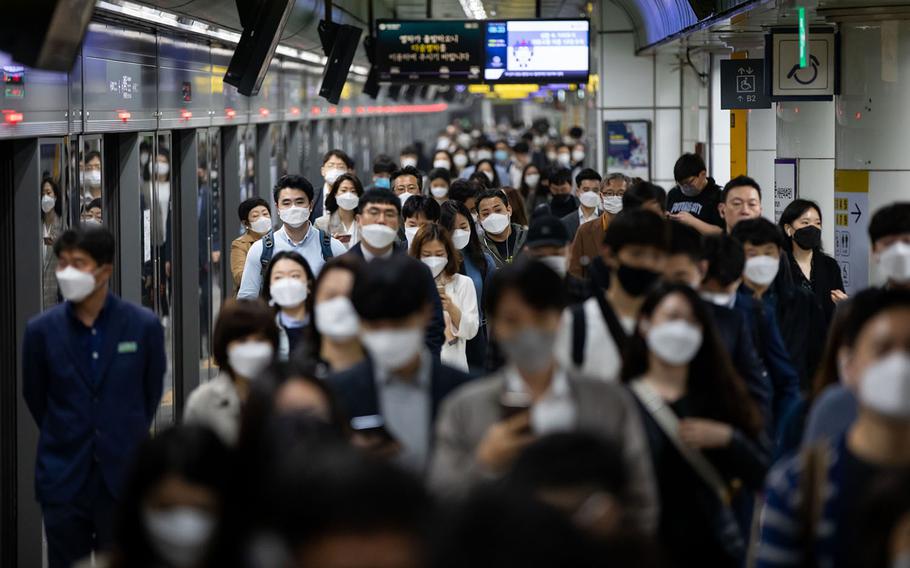
Passengers in a subway station in Seoul, South Korea, on May 18, 2020. (SeongJoon Cho/Bloomberg)
Stars and Stripes is making stories on the coronavirus pandemic available free of charge. See other free reports here. Sign up for our daily coronavirus newsletter here. Please support our journalism with a subscription.
SEOUL, South Korea - South Korea will ease coronavirus restrictions on restaurants and coffee shops for two weeks beginning Monday to reward a declining number of confirmed cases.
In August, restaurants in the metropolitan area had been ordered to close for dining in at 9 p.m., while large coffee chains, bakeries and ice cream shops had to offer takeout and delivery only as part of a push to curb a new outbreak of COVID-19.
Health authorities said Sunday that the effort, dubbed social distancing level 2.5, has succeeded in driving down the number of infections enough to lift the extra restrictions.
However, officials cautioned that the facilities must strictly maintain entry logs of customers and limit the number of customers inside. Other measures also remain, including city mask mandates and calls to continue other standard prevention measures such as thoroughly washing hands and maintaining safe distances from others.
South Korea reported 121 new cases on Sunday, the 11th consecutive day the daily toll was below 200.
Only 99 of those were locally transmitted. The others were imported from abroad for a total of 22,176 since the pandemic took hold here in late February.
The death toll increased by three to 365, according to the Korea Disease Control and Prevention Agency, or KDCA.
The newly formed agency, which has been given more autonomy, replaced the Korea Centers for Disease Control and Prevention last week and will be led by the KCDC chief Jeong Eun-kyeong.
Health Minister Park Neung-hoo welcomed the declining numbers but noted that it was taking longer to stop the latest outbreak compared to an initial wave of infections that occurred in the spring.
“Thanks to our concerted efforts, the spread of COVID-19 has been consistently decreasing in the greater Seoul area,” Park said during a daily briefing. “But we are still in a critical situation. The downward pace is slower than expected.”
Last month, U.S. Forces Korea also reimposed stricter conditions on the 58,000-strong military community in South Korea, including a ban on non-official travel and most off-base recreational activities including dining at local restaurants or going to bars.
gamel.kim@stripes.com Twitter: @kimgamel